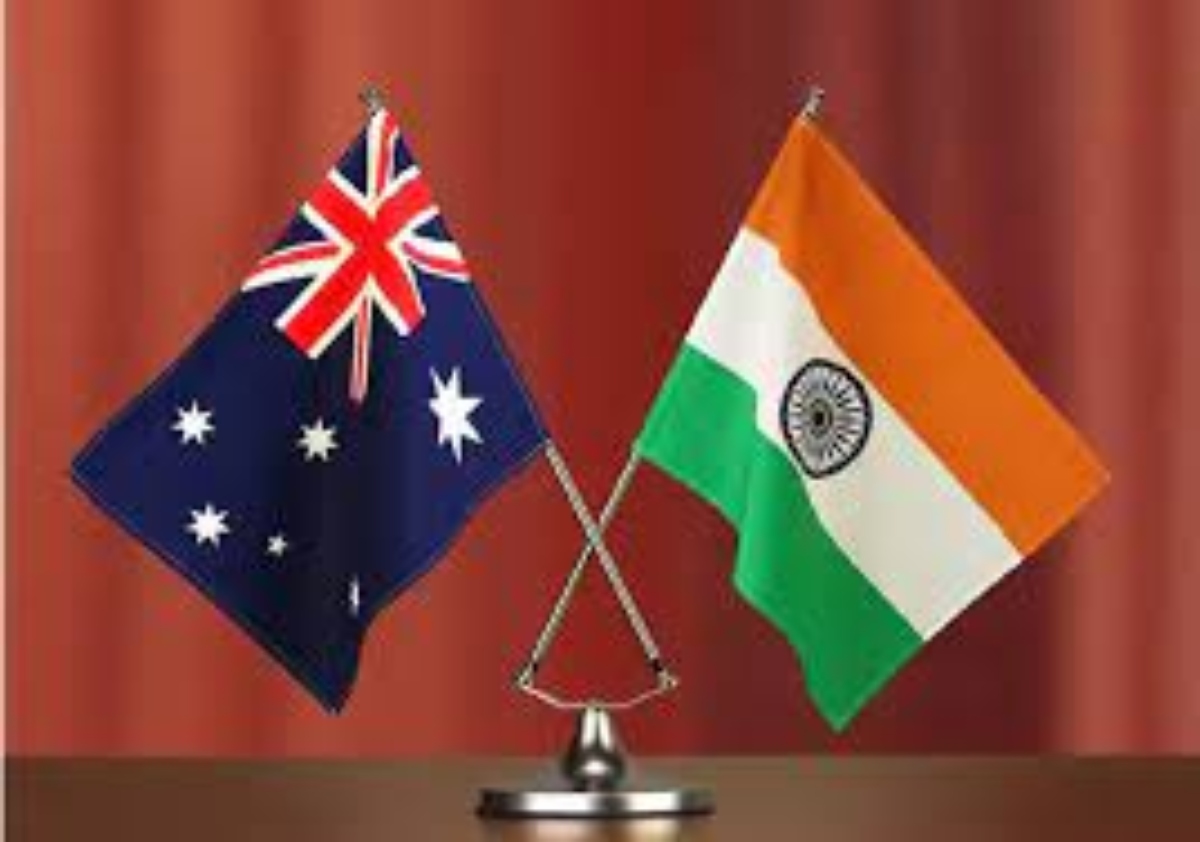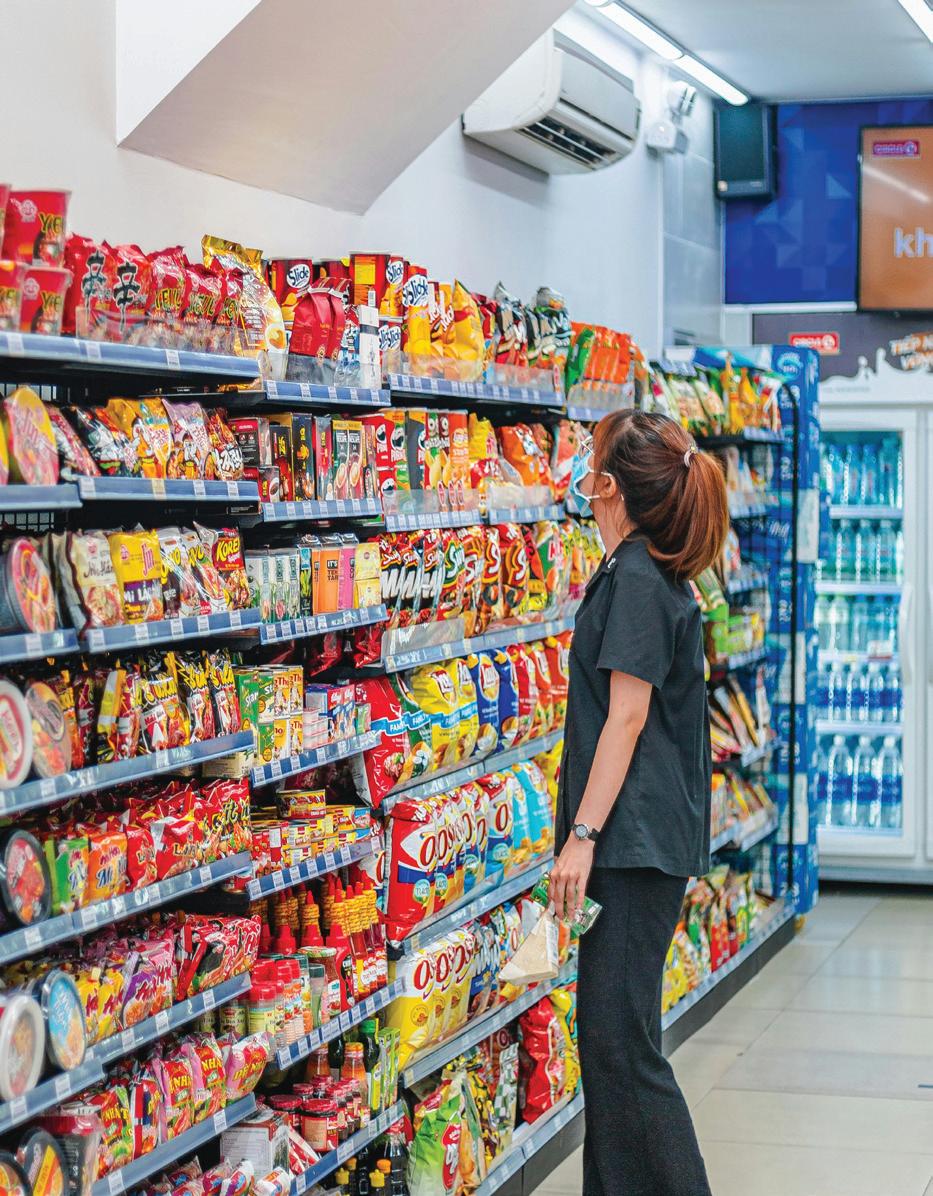Australian High Commissioner to India, Barry O’Farrell on Tuesday lauded India’s economic stability and said “India has markets that can help us grow in the post-COVID world.”
In an exclusive interview with ANI, the Australian High Commissioner congratulated India on becoming the 5th largest economy in the world. “India and Australia are complementary economies. We have elements to assist India to grow, India has markets that can help us grow in the post-COVID world. For democracy, when you do trade deals. There’s got to be benefits for both countries,” he said.
Speaking about India-Australia 1.5 track dialogue, Barry O’Farrell said, “It’s an opportunity to bring together academics, business people and think tankers to discuss common problems and see greater cooperation between both countries as we are tackling similar issues.
Sharing his view on the next Quad hosting by Australia, Barry O’Farrell said, “I am delighted that Australia is hosting quad leaders meeting next year, which means PM Modi will visit Australia… India, Australia, Japan & US are focused on their region, security, health needs and climate change issues.”
Regarding Economic Cooperation and Trade Agreement (ECTA) and Double Taxation Avoidance Agreement (DTAA), he said that the commitments by the Australian Government will be delivered “but democratic countries have to go through a process and in our case, that’s happening as quickly as possible.”
India and Australia Saturday signed an Economic Cooperation and Trade Agreement (IndAus ECTA) which is set to provide zero-duty access to 96 per cent of India’s exports to Australia including shipments from key sectors such as engineering goods, gems and jewellery, textiles, apparel and leather.
provide zero-duty access to 96 per cent of India’s exports to Australia including shipments from key sectors such as engineering goods, gems and jewellery, textiles, apparel and leather.
The pact is expected to boost bilateral trade in goods and services to USD 45-50 billion over five years, up from around USD 27 billion, and generate over one million jobs in India, according to a government estimate.
The agreement will also give about 85 per cent of Australia’s exports zero-duty access to the Indian market, including coal, sheep meat and wool, and lower-duty access to Australian wines, almonds, lentils, and certain fruits.
Zero-duty access for Indian goods is set to be expanded to 100 per cent over five years under the agreement.
India and Australia enjoy excellent bilateral relations that have undergone transformative evolution in recent years, developing along a positive track, into a friendly partnership.
This is a special partnership characterized by shared values of a pluralistic, parliamentary democracy, Commonwealth traditions, expanding economic engagement, long-standing people-to-people ties and increasing high-level interaction.
The India-Australia Comprehensive Strategic Partnership was initiated during the India-Australia Leaders’ Virtual Summit.
Growing India-Australia economic and commercial relations contribute to the stability and strength of a rapidly diversifying and deepening bilateral relationship between the two countries.
Consumer durables sales
sustain farmer incomes, will push demand for consumer durables,” said Pushan Sharma, Director, at CRISIL Research.
However, the drought situation in eastern India and monsoon progress remain key aspects to monitor, Sharma added.
According to Anand Kulkarni, Director, CRISIL Ratings: “Over the near-to-medium term, capital expenditure may increase because of the government’s Production-Linked Incentive (PLI) scheme for ACs, though this is likely to be done in a phased manner, without impacting credit profiles.”
Demand for televisions would be driven by shorter replacement cycles, multiple ownerships, and a preference for larger screens. Technological advancement, high competition and a consequent significant reduction in prices have also aided demand in this segment.
PLI scheme on ACs is aimed to gradually reduce India’s import dependency on some of the key raw material components of ACs such as compressors, heat exchangers and control assemblies over the next five years.
Digital currency launch
focussing on scaling up fraud management.
UN said that the use of cryptocurrency rose globally at an unprecedented rate during the COVID-19 pandemic with India becoming the 7th highest country in digital currency ownership. As of 2021, 7.3% of Indian population owned assets in form of digital currency.
Developing countries accounted for 15 of the top 20 economies when it comes to the share of the population that owns cryptocurrencies as per 2021 data.
The UN body published 3 three policy briefs, which said that while these private digital currencies have rewarded some and facilitate remittances, they are an unstable financial asset that can also bring social risks and costs.
B’desh faces heavy loss
fraudulent tax evasion of Rs 250 crore for Bangladesh.
The agency has also been accused of being involved in printing fake Bangladeshi passports, ballot papers, national identity cards, birth registration certificates.
Chinese economic involvement in the South Asian region is often accompanied by corruption and crime that Chinese government-affiliated companies habitually use in the region to gain an unfair advantage.
Estimates suggest that China accounts for the largest illicit financial flows related to corrupt business practices by value globally, particularly to developing countries.
Meanwhile, between 2011 and 2021, China invested USD 10 billion in infrastructure in Bangladesh but according to some media reports, Beijing had missed fulfilling the promises on several deals signed during President Xi Jinping’s visit to Dhaka in October 2016.
After missing several deadlines, work on Karnaphuli multiple road tunnel project in Bangladesh’s Chittagong district, inaugurated by Chinese President Xi Jinping virtually in 2017, started in 2020.
Being built by China Communication and Construction Company Limited, the 9.3 km long tunnel project would be completed not before 2023, said the Daily Star in its recent report.
The Bangladesh government needs to be careful if it wants to avoid the same fate as Sri Lanka, which is struggling with its worst economic crisis due to the huge Chinese loan debt.


 Opinion3 years ago
Opinion3 years ago
 Entertainment8 years ago
Entertainment8 years ago
 Entertainment8 years ago
Entertainment8 years ago
 Fashion8 years ago
Fashion8 years ago
 Opinion4 years ago
Opinion4 years ago
 Entertainment8 years ago
Entertainment8 years ago
 Politics8 years ago
Politics8 years ago
 Entertainment8 years ago
Entertainment8 years ago









